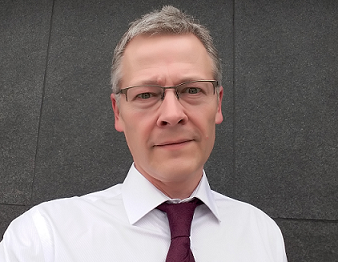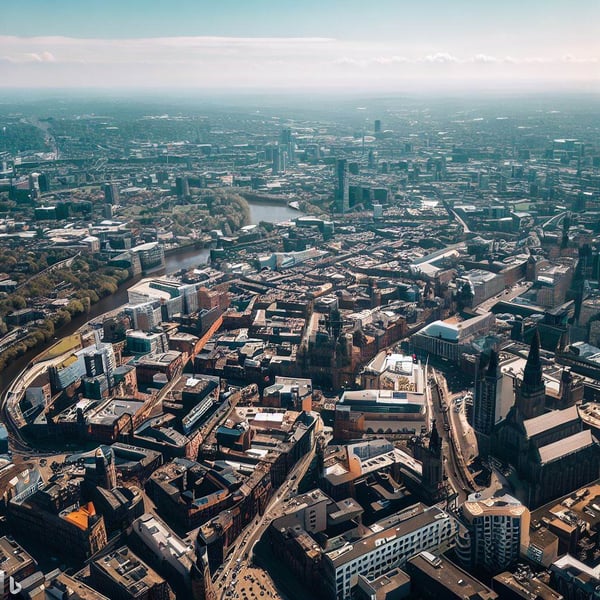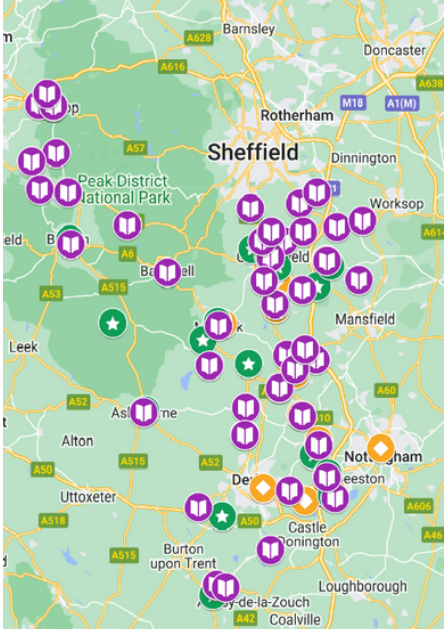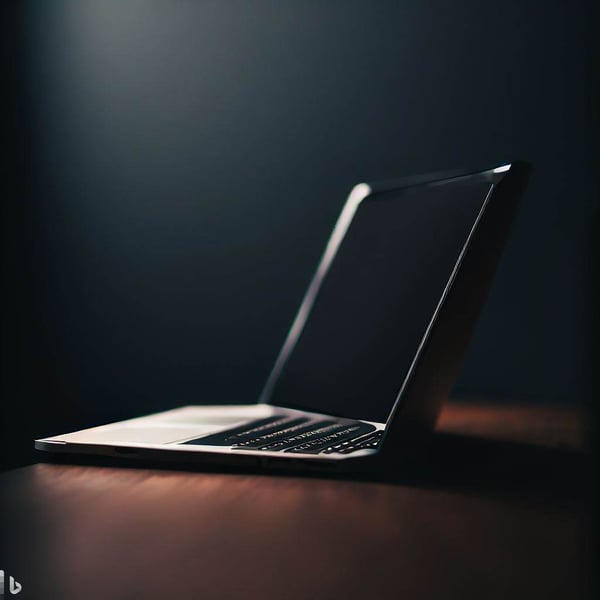How Leeds City Council is winning the battle against digital exclusion
An award-winning team within the integrated digital service at Leeds City Council has been working since 2018 with organisations across the third sector to ensure that everyone in Leeds has access to digital tools, services and skills.
Jason Tutin, 100% Digital Leeds Lead and Digital Inclusion Manager at Leeds City Council, and Rachel Benn, Digital Inclusion Coordinator, tell Government Transformation how their work is helping to close the digital exclusion gap.
Joining the dots
The 100% Digital Leeds programme is made up of four coordinators and a supporting officer led by Tutin, which will be expanding further thanks to external funding.
Millions of people in the UK are living in digital poverty. According to the digital inclusion charity Good Things Foundation, 1.5 million UK households still do not have internet access at home and an additional 2 million homes are struggling to afford it. The charity also claims that 10 million people in the country still lack basic digital skills and almost 15 million people have very low levels of digital engagement.
Rather than starting from scratch, 100% Digital Leeds joins the dots between people who live in digital poverty and trusted community groups and third sector organisations that can help them access devices or develop their digital skills. Benn says that it is about finding safe spaces within the community that people trust and are already engaging with, and support them with the delivery of their digital inclusion initiatives.
Benn’s outreach work is focused on helping these organisations to increase their confidence and capacity so they can deliver more effective and sustainable digital inclusion interventions.
 “We support [these organisations] to build and develop their digital inclusion offer and enable them to better support the people that they work with around the theme of digital inclusion,” Benn explains.
“We support [these organisations] to build and develop their digital inclusion offer and enable them to better support the people that they work with around the theme of digital inclusion,” Benn explains.
100% Digital Leeds looks at the existing offers around digital inclusion, such as device lending schemes or digital skills development sessions, and helps bridging any gaps to support those organisations through funding opportunities, training or advice. The programme enhances the services already on offer and supports the organisations through their journey.
The organisations Benn works with include local care partnerships and third sector groups able to build community capacity and ensure that there is a solid infrastructure in place to embed the digital inclusion agenda. The aim, she adds, is to empower people so they feel confident to use digital services and tools: “It's really about building on the expertise, knowledge and skills that already existed within that community”.
Using this “place-based” and person-centred approach, 100% Digital Leeds has set up ‘Digital Health Hubs’ with different focuses, including healthcare, care homes, mental wellbeing and others. Benn highlights that hubs are “not one size fits all” and each is tailored to its service users and their specific needs.
The digital health hubs
Digital health hubs are dedicated community organisations and locations with trusted people on hand to help their service users to access relevant information and tools to improve their health and wellbeing. Digital Health Hubs tie digital inclusion and health literacy together and are as much about supporting improved health and wellbeing as they are about supporting people to have the skills, confidence, motivation, and connectivity to do more with digital.
The pandemic has changed the way GP surgeries work, and, in many cases, doctors offer video consultations with their patients to avoid a surge in Covid-19 cases. However, reliance on digital appointments means that many people have been left out. By partnering with local GP practices, local care partnerships and other community organisations, digital health hubs can be used by patients without digital access or skills to access healthcare services.
The digital health hubs facilitate virtual consultations to people that cannot or do not want to have them at home for confidentiality reasons, or lack of connectivity, equipment or skills. They provide a safe space for those patients who want to have virtual consultations with their GP or access other online healthcare services. 100% Digital Leeds, in turn, helps those organisations overcome any barriers they might face at the time of facilitating this.
Benn explains that for some people what is stopping them from accessing online healthcare is not having a device or connectivity. The digital health hubs can signpost them to device lending schemes within their network that people can use to develop their own digital inclusion journeys and develop their skills in their own time and their own path. In most cases, the greatest barrier is lack of confidence.
“It’s very much been about building confidence and overcoming that motivation barrier,” Benn says. “It’s about being able to have a positive conversation with people around digital and raising awareness of the benefits that digital can bring for people.”
Tutin and Benn stress the importance of the cross-sector collaboration element in this mission and the need of adopting a holistic approach to digital inclusion.
“It's not just all on the third sector, or the health services,” they say. “And obviously, our role as a team has been very much kind of facilitating that and supporting that, and creating and linking in those partnerships.”
Sharing and applying the model to other local authorities
The team at 100% Digital Leeds is working with other councils across the country and healthcare bodies to explore ways in which their model can be replicated and adapted in other local authorities.
When the first lockdown began in early 2020, the then Ministry of Housing, Communities and Local Government (MHCLG) called for proposals from local council digital teams for tackling the digital exclusion that the pandemic was exacerbating.
Leeds City Council and Croydon Council applied separately to create a toolkit with digital inclusion best practices that had worked for them in the past. MHCLG invited both councils to work together on the project, which resulted in the Digital Inclusion Toolkit - a platform with advice and resources for councils to help them tackle digital exclusion in the communities they serve.
 “It’s specifically designed as advice to guide other councils, who see digital inclusion as a priority but may not be confident, not quite sure where to start, or how to get the funding to appoint a person or a team, or which communities to focus on in their area,” Tutin says. “So the toolkit is basically step by step how-to guide as to how you do digital inclusion in a place.”
“It’s specifically designed as advice to guide other councils, who see digital inclusion as a priority but may not be confident, not quite sure where to start, or how to get the funding to appoint a person or a team, or which communities to focus on in their area,” Tutin says. “So the toolkit is basically step by step how-to guide as to how you do digital inclusion in a place.”
100% Digital Leeds was recently awarded funding over the next 12 months from the Local Government Association to adapt the place-based digital health hub model into a community based model that can be applied to specific communities such as older people, refugees, asylum seekers or the homeless.
Tutin and his team are also talking to councils that might be facing different challenges, such as those in rural areas where digital exclusion might be happening because of lack of connectivity or poor broadband.
He adds: “We're reaching out to those other councils who've got other experiences and can contribute content and ideas over the next three to four months or so”.
(Home page image courtesy of Leeds City Council.)





